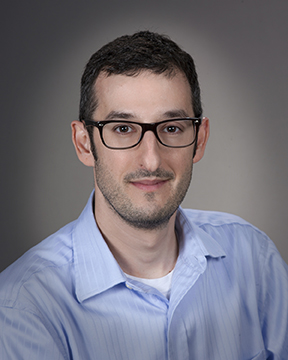Levine Receives DOD Grant to Aid with Spinal Cord Injuries
COLLEGE STATION, TEXAS – The One Health Initiative is represented again at the Texas A&M College of Veterinary Medicine & Biomedical Sciences (CVM). Dr. Jonathan Levine, assistant professor in neurology at the CVM, and his team were recently awarded a Department of Defense (DOD) grant worth over $900,000 to develop non-invasive treatments and therapies for spinal cord injuries (SCI) in dogs, with the hope of translating results to humans with SCI.

Levine’s study will focus on dogs with naturally occurring SCI and will run from October 2011 until October 2014. Levine’s prior SCI research has focused on spinal cord imaging and biological molecules associated with injury. With the help of this grant, Levine and his team hope to produce findings that may be more applicable to humans with SCI compared to traditional models, as dogs have similar injuries to humans.
“Because these injuries happen naturally they are more diverse,” explained Levine. “Affected dogs are out in the environment, they’re not all the same breed, the injuries don’t happen the same way. So the diversity probably gives a little advantage exploring theories into the possible treatment of dogs and humans with SCI.”
The DOD was particularly interested in Levine’s research because of the possible implications it may have on troops with SCI. Not only is SCI in humans physically debilitating, it can be extremely draining on the wallet. Described as the second most costly injury, a person who has sustained a SCI at age twenty-five may incur anywhere from $729,000 to $3.2 million in expenses over a lifetime.
Along with CVM researchers, Dr. Sharon Kerwin, Dr. George Lees, and Dr. Virginia Fajt, Levine will partner with two researchers at the University of California, San Francisco: Dr. Linda J. Noble-Haeusslin, professor with the department of neurological surgery and the department of physical therapy and rehabilitation science, and Dr. Tom Lue, professor and vice chair of urology.
“Noble and her team are leading researchers in traumatic brain and spinal cord injuries,” said Levine. “We are thrilled to have their expertise in working on this project.”
Clinical trials for this grant will be performed on young to middle aged canines with canine thoracolumbar intervertebral disk herniation (IVDH). IVDH is a spontaneous disease that is very similar to acute SCI in humans. Dachshunds represent about half of the cases.
The grant comes at a good time for Levine and his team, as the CVM will soon unveil the new Diagnostic Imaging and Cancer Treatment Center (DICTC). The DICTC will feature a 3 Tesla MRI which will help to advance Levine’s research efforts through high resolution diagnostic imaging. This state-of-the-art MRI will produce these images much faster and the higher resolution images will make it easier to identify problems on the spinal cord with more precision than ever before.
Contact Information:
Angela G. Clendenin
Director, Communications & Public Relations
Ofc – (979) 862-2675
Cell – (979) 739-5718


